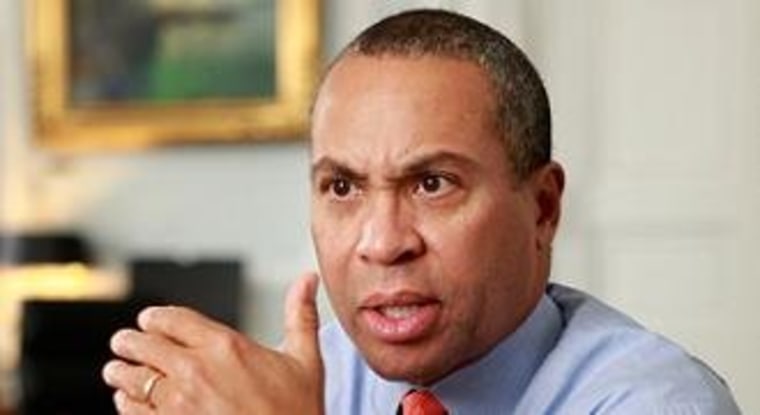There are 100 members of the United States Senate, and none is African American. There are 50 governors, and only one, Massachusetts' Deval Patrick (D), is African American, and he won't seek another term.
Perhaps the 2012 elections will help bring some additional diversity to statewide offices? Apparently not. Jamelle Bouie reported yesterday that there will very likely be no African-American candidates even running for governor or senator in November.
[S]ince the momentous 2008 election, there has been no great flowering of black political life, no renaissance in black political leadership. In a year when the first black president is running for re-election, the only African American bidding for a top statewide office is Maryland state Senator C. Anthony Muse, who is challenging Ben Cardin -- a well-liked incumbent -- in a hopeless race for the Democratic U.S. Senate nomination. At most, by the end of 2012, two of the nation's 150 governors and senators will be African American.Yes, David Patterson became governor of New York after the resignation of Eliot Spitzer, but he bowed out of running for a full term after struggling with low approval ratings and accusations of corruption. Obama's replacement in the U.S. Senate, former Illinois lawmaker Roland Burris, operated under a cloud of scandal and didn't even attempt to win the seat in his own right. In 2010, a historically bad year for Democrats, Massachusetts Governor Deval Patrick was the only African American to win statewide office.If the number of officeholders was in line with African Americans' share of the population -- 12.2 percent -- there would be at least 12 African American senators and six governors. By contrast, the percentage of African Americans in the House of Representatives is nearly consistent with their share of the population -- 42 members, or almost 10 percent.
Jamelle's point wasn't just to recite the data, but rather, to consider what's responsible for these circumstances. Of particular interest, he takes note of the African-American House members who could, in theory, use their seats to springboard into statewide campaigns, but don't -- these lawmakers have lower name recognition, tend to be too liberal for statewide campaigns, and generally represent less-affluent districts, making fundraising far more challenging.
As for concerns about racism, Jamelle went on to argue, "[O]utright racism isn't the main reason that keeps African Americans locked out of the highest statewide positions. Rather, it's the accumulated effects of long-term racial discrimination -- the limitations associated with representing heavily black House districts or leading majority-black cities -- that block further advancement."
The result is that Deval Patrick will remain the only member of a very small club.
